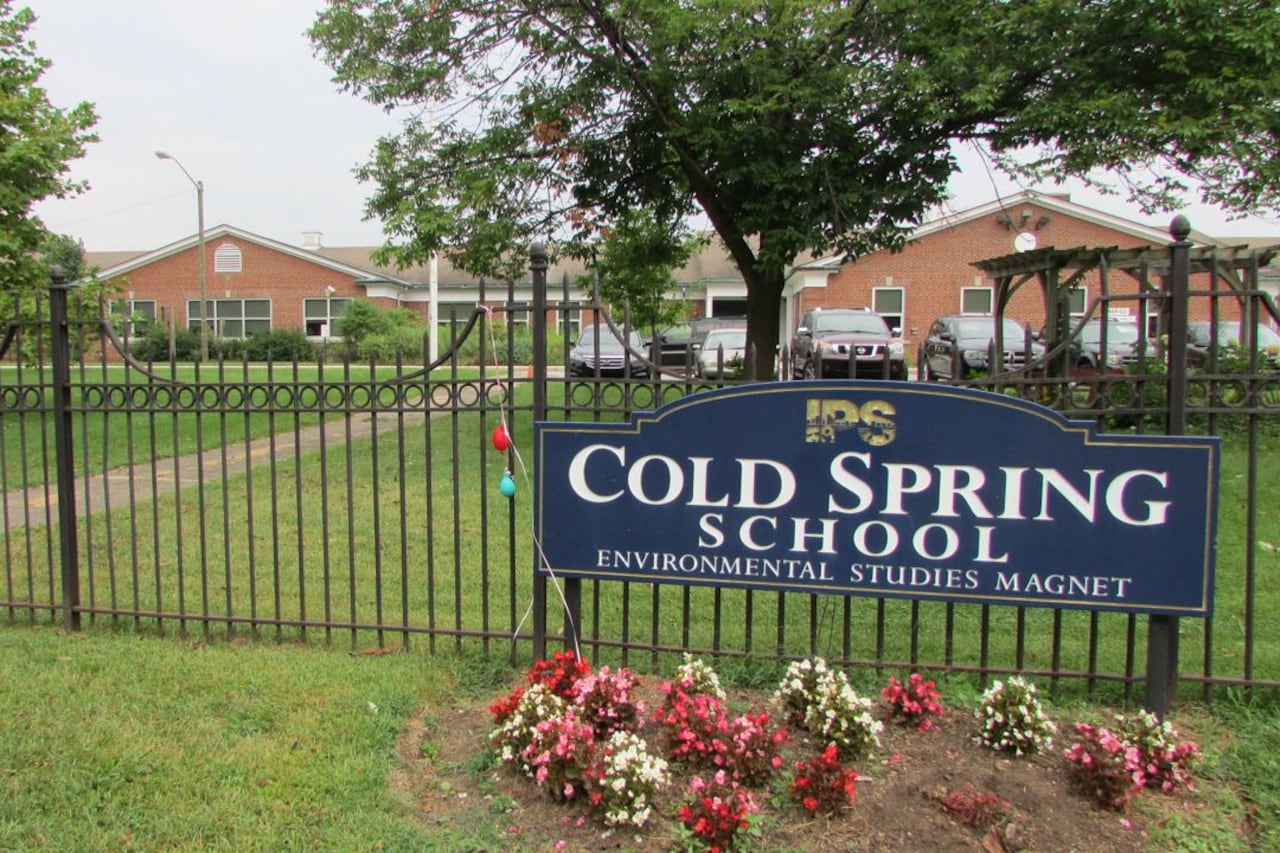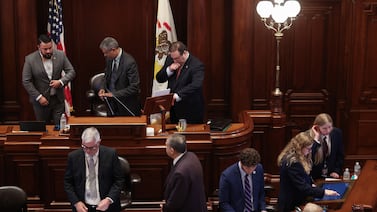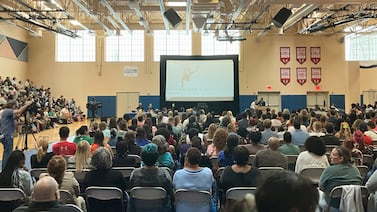Sign up for Chalkbeat Indiana’s free daily newsletter to keep up with Indianapolis Public Schools, Marion County’s township districts, and statewide education news.
Indianapolis Public Schools rejected an attempt last month by a school in its Innovation Network to convert into a charter school, citing an education policy landscape in the city that’s in flux.
The K-8 Cold Spring School, which is known for its competitive robotics team and STEM programs, had sought to amend its Innovation Network agreement with IPS so that, for the final two years of that agreement, it could operate as a charter.
Schools in the Innovation Network are independently run but receive services such as transportation and food from the district. Some innovation schools have charters, while others, like Cold Spring, do not. Schools without charters have a much closer relationship with IPS, relying on the district to provide special education and English as a Second Language services.
The decision by IPS comes amid a heated debate over how IPS and charter schools should share resources. Recent state policy changes have also shifted the balance of financial power between the two types of schools, and there has been significant tension between the two sectors in recent months.
Cold Spring primarily sought to become a charter school for financial reasons. The conversion would have afforded Cold Spring an additional $400,000 per year in funding, Chief Operating Officer Cody Stipes said. That money would have paid for a K-8 foreign language teacher, a second middle school math teacher, and a school resource officer, the school said.
Cold Spring successfully applied for a 15-year charter in May and was simply waiting on the go-ahead from IPS. School officials had spent months discussing the conversion with IPS leadership and assumed the board would approve the amended agreement. But in an email to Cold Spring leadership on June 23, the board announced it would not approve the change. The board’s decision did not involve a public vote.
In response to the crowd of Cold Spring supporters who protested the board’s decision at the June meeting, IPS board members highlighted the uncertain impact of recent policy changes on issues like property taxes, as well as a desire to limit new charter schools in the district.
“Our answer is not never, it is simply not now,” Board President Angelia Moore said. “We remain committed to partnership and leadership.”
IPS school seeks charter status for financial reasons
As a charter school, Cold Spring would be considered its own local educational agency by the state. And it would receive money directly from the state rather than through IPS’ per-student funding model, even as it remained in the Innovation Network. That and other factors would give the school a financial edge.
For the 2025-2026 school year, the IPS budget has allocated approximately $8,250 in state funding per student. But if Cold Spring were to become a charter, it would receive about $8,500 per student in basic tuition plus $1,400 per student from the Charter and Innovation Network Grant, according to Stipes.
As a charter, Cold Spring would also be eligible for many more grants, such as the federal Charter School Programs grant.
“That’s real funds that would have been able to be reinvested into Cold Spring to add a foreign language teacher, additional staff to support academic learning, and many, many more things going to students in their classrooms,” said Stipes at the June board meeting.
Other significant changes are on the way for local school funding.
Districts in Marion County are expected to lose a total of $40.4 million in local property tax revenue in 2026 and 2027 due to property tax relief pushed by Gov. Mike Braun. Changes to state tax rules will also require traditional public schools to share property tax revenue with charter schools beginning in 2028, a measure that was hotly contested.
At the same time, IPS has sought to slow the spread of charters. In the last several years, IPS enrollment has fallen while charter enrollment has risen. After IPS called for a moratorium on new charter schools in February, state lawmakers agreed to prohibit the creation of new charters within IPS borders between July and December, except for those approved by the mayor’s office.
In addition, a new advisory body, the Indianapolis Local Education Alliance, met for the first time in June to discuss how IPS and charters can effectively share resources.
Cold Spring leadership and families said granting their request wouldn’t violate IPS’ stated priorities.
Conversations about converting Cold Spring into a charter, they say, date back to February 2024, roughly a year before IPS sought the charter moratorium.
Several parents said they believe the opposition to a Cold Spring charter has become needlessly political, caught up in the debate that often pits traditional public schools against charters. In fact, making Cold Spring a charter, Stipes said, would likely benefit IPS because it would save the district costs related to special education and English as a New Language services.
Stipes said it was important to many of the families at Cold Spring that they remain in partnership with IPS. In parent town hall meetings, many asked how the move would affect the district and expressed their desire to help IPS succeed.
“This is not about walking away from IPS,” said Cold Spring parent Christine Wise. “It’s about letting a strong school grow into its next chapter.”
Nevertheless, Moore, the IPS board president, cited the district’s “guiding principles” and its desire to “remain consistent with our advocacy” when explaining its decision to reject Cold Spring’s request.
Samantha Camire is a summer reporting intern covering education in the Indianapolis area. Contact Samantha at scamire@chalkbeat.org.






